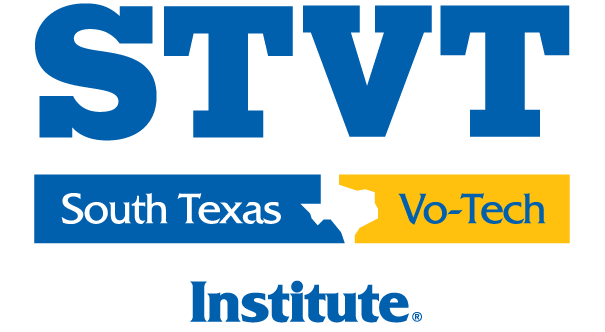Heating, ventilation, and air conditioning (HVAC) technicians can be huge contributors to the comfort and safety of local homes and businesses. Despite the impact these unsung heroes have on our everyday lives, many often overlook the value they bring to our society.
Before delving into the benefits of pursuing this profession, it’s important to understand the impact HVAC has on our daily lives.
Why Is HVAC So Important?
HVAC units help maintain the safety and comfort of indoor environments. They can filter out airborne impurities, like allergens and pollutants, to improve indoor air quality and reduce the risks of respiratory issues. In addition to human comfort, HVAC units can help preserve the integrity of residential and commercial buildings.
HVAC units also help regulate temperature and humidity control, which can prevent mold from growing, excess condensation from pooling, and structural damage. This can improve the longevity of building structures and keep them safe for others to live and work in all year round.
More energy-efficient HVAC units can help companies and homeowners save on their utility bills and reduce greenhouse gas emissions.
Why Become an HVAC Technician?
There are many reasons someone may choose to become an HVAC technician. For some, it may be a passion for working with their hands and solving complex problems. For others, it may be the stability and job security that comes with being part of an essential industry. Regardless of the motivation, becoming an HVAC technician can offer a rewarding career path with many benefits.
HVAC technicians are seeing increased job demand.
According to the Bureau of Labor Statistics (BLS), the national job outlook between 2023 and 2033 for heating, air conditioning, and refrigeration mechanics and installers, also called HVAC technicians, is projected to grow 9%, much faster than average. If this 9% growth holds, an average of 40,100 jobs may be available each year across the nation.
According to the May 2023 figures in the Occupational Employment and Wages report, Texas holds the third highest employment rate for HVAC technicians. The Dallas-Fort Worth-Arlington area alone employs roughly 10,000 HVAC technicians.
HVAC technicians can contribute to their community and help improve the environment.
HVAC technicians can choose to specialize in residential, commercial, or industrial units or work at a company that allows them to service a mix of these units. Regardless of their specialty, an HVAC technician’s skills can help keep schools, local businesses, restaurants, and more safe for customers and workers alike. These communal spaces rely on HVAC units to maintain a comfortable and healthy environment.
Beyond the primary responsibility of repairing and maintaining HVAC units, technicians also have an opportunity to educate their community on energy efficiency. Educating clients on how to properly use their heating and cooling systems can help technicians decrease energy consumption in their area. This can help reduce the customer’s utility bills and reduce greenhouse gas emissions.
HVAC technicians can choose a specialty or work on different kinds of units.
HVAC technicians who choose to specialize in residential equipment can spend their days treating home units. These smaller units can be easier to work on as they have fewer components than larger commercial units. This can reduce the amount of specialized equipment required for regular maintenance and repair.
HVAC technicians who choose to specialize in commercial equipment may work in a wide range of environments like churches, restaurants, office buildings, and more. These units tend to be larger and more complex, requiring specialized training and equipment for maintenance and repair.
Regardless of their chosen specialty, HVAC technicians play a crucial role in the proper functioning of heating, ventilation, and air conditioning systems. By identifying potential energy inefficiencies and making necessary repairs or upgrades, they can help customers save money on utility bills while also contributing to environmental sustainability.
HVAC technicians who specialize in industrial equipment work in large-scale buildings like hospitals, shopping malls, chemical plants, universities, and more. These buildings often have more complex units that require special considerations that technicians who work on residential and commercial units likely won’t face. As such, industrial HVAC technicians often work closely with architects and contractors to design and install efficient heating, cooling, and ventilation systems that meet the specifications of each building. This involves reading blueprints, selecting appropriate equipment, and confirming proper installation and testing.
Training to become an HVAC technician is quick and interactive.
Most HVAC programs can be completed in two years or less depending on the award type. These training programs often incorporate hands-on learning in simulated workshops to help aspiring technicians familiarize themselves with equipment they may encounter on the job. This also allows aspiring technicians to practice servicing equipment in accordance with Environmental Protection Agency (EPA) standards and Clean Air Act legislation.
At South Texas Vocational Technical Institute (STVT®), aspiring HVAC technicians can complete our HVAC and Basic Refrigeration program in as little as 10 months. Students can apply their skills in our interactive workshops and study under industry-experienced instructors. Throughout our program, we expose students to National Center for Construction Education and Research (NCCER) competencies.
HVAC technicians can work on different projects each day.
HVAC technicians have a diverse skill set, but they may not use all of them for each project. Some tasks could include installing HVAC systems, troubleshooting and repairing existing systems, performing maintenance checks, and working with electrical wiring. Being able to tackle a wide range of problems each day can keep a technician’s job interesting and challenging.
Start Training for HVAC Careers at STVT
At STVT, our students can learn the fundamentals of HVAC and basic refrigeration systems. This includes understanding the principles of heating, ventilation, air conditioning, and refrigeration, as well as learning about different types of equipment and their components. Our interactive classrooms and labs allow students to gain hands-on experience in a simulated learning environment, so they can better prepare for scenarios they may encounter in the future.
Under the guidance of our industry-experienced instructors, students will have the opportunity to develop skills that are in high demand in the HVAC industry. We also expose students to National Center of Construction Education and Research (NCCER) competencies throughout their studies.
Ready to start training for careers in HVAC? Call us at 866-480-9766 or submit this form for more information!
Disclaimer: Information within this blog is for general information purposes only. STVT does not assume or guarantee certification/licensures, specific job/career positions, income earning potential or salary expectations based on the programs offered at STVT. Career and program information statements in this blog do not guarantee that programs or other information mentioned are offered at STVT.



